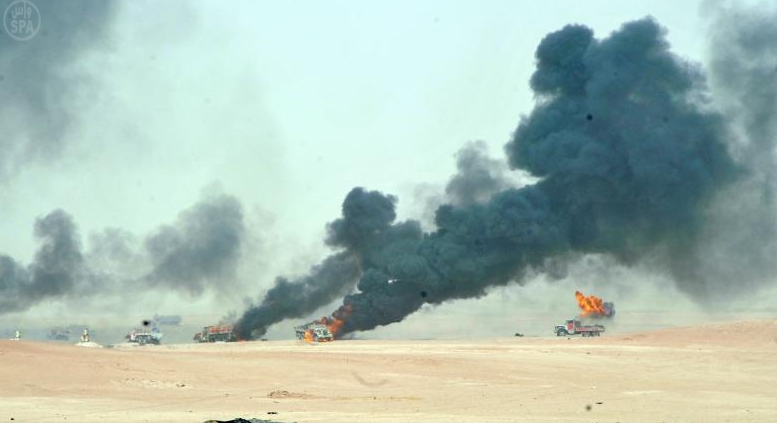Saudi Arabia has prevailed over friendly Gulf rival Qatar as the “main outside force” supporting the Syrian rebel cause, according to a recent Reuters report.
Mariam Karouny reports that Saudi Arabia “has prevailed over its small but ambitious Gulf neighbor Qatar to impose itself as the main outside force supporting the Syrian rebels, a move that may curb the influence of Qatari-backed Islamist militants.”
Reuters:
“Though governments in neither Riyadh nor Doha would provide official comment, several senior sources in the region told Reuters that the past week’s wrangling among Syria’s opposition factions in Istanbul was largely a struggle for control between the two Gulf monarchies, in which Saudi power finally won out.
“‘Saudi Arabia is now formally in charge of the Syria issue,’ said a senior rebel military commander in one of northern Syria’s border provinces where Qatar has until now been the main supplier of arms to those fighting President Bashar al-Assad.”
The report also notes that Saudi Arabia’s Prince Salman bin Sultan, a senior Saudi security official, “was now running relations with the Syrian rebels, backed by his elder brother, intelligence chief Prince Bandar bin Sultan.”
Meanwhile, writing in Al Arabiya, prominent Saudi Arabian voice Jamal Khashoggi writes that the focus on the upcoming Geneva 2 talks, which may help to provide war-torn Syria with a ceasefire, will be on the United States and Russia, and not on the two sides actually fighting in Syria:
“During the expected upcoming Geneva 2 conference this month, all the attention will be focused on the U.S. and Russian foreign ministers rather than the delegations of the government and the opposition; both countries are leading the negotiations…
“It is rather an international U.S.–Saudi attempt to drag the Russians to the Security Council. The Russians have been hesitant for the past two years of massacres in Syria; They were telling the world, along with the Iranians, that there will be “no solution except a peaceful one”, recalling the agreement of the earlier Geneva conference, which called upon ceasefire and negotiations for the formation of a transitional government. All the countries were arguing about the “negotiations” and when, where and how the transitional government will be formed bringing together the regime and the opposition, without paying attention to the main condition: the “ceasefire.”
As the dreadful situation continues without resolution, the ongoing struggle in Syria that continues to draw in regional powers is pumping up sectarian conflicts across the region, according to this report on the front page of the New York Times today.
The NYT writes that the Syrian civil war “is setting off a contagious sectarian conflict beyond the country’s borders, reigniting long-simmering tensions between Sunnis and Shiites, and, experts fear, shaking the foundations of countries cobbled together after the collapse of the Ottoman Empire…
“For months, the fighting in Syria has spilled across its borders as rockets landed in neighboring countries or skirmishes crossed into their territories. But now, the Syrian war, with more than 80,000 dead, is inciting Sunnis and Shiites in other countries to attack one another.”
Read the full report from Reuters by clicking here.
Read Jamal Khashoggi’s opinion in Al Arabiya by clicking here.
Read the NYTimes report about growing sectarianism across the region by clicking here.










